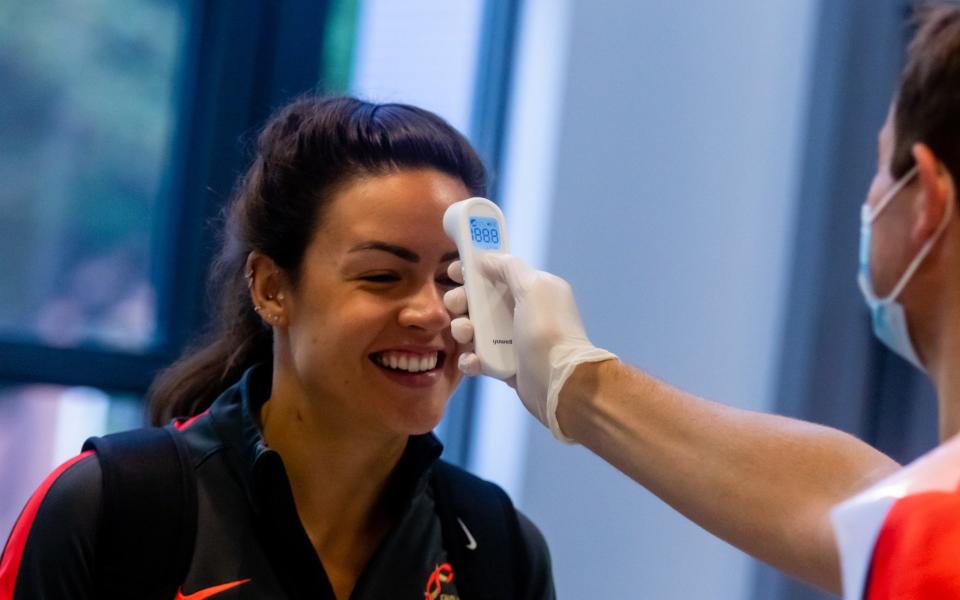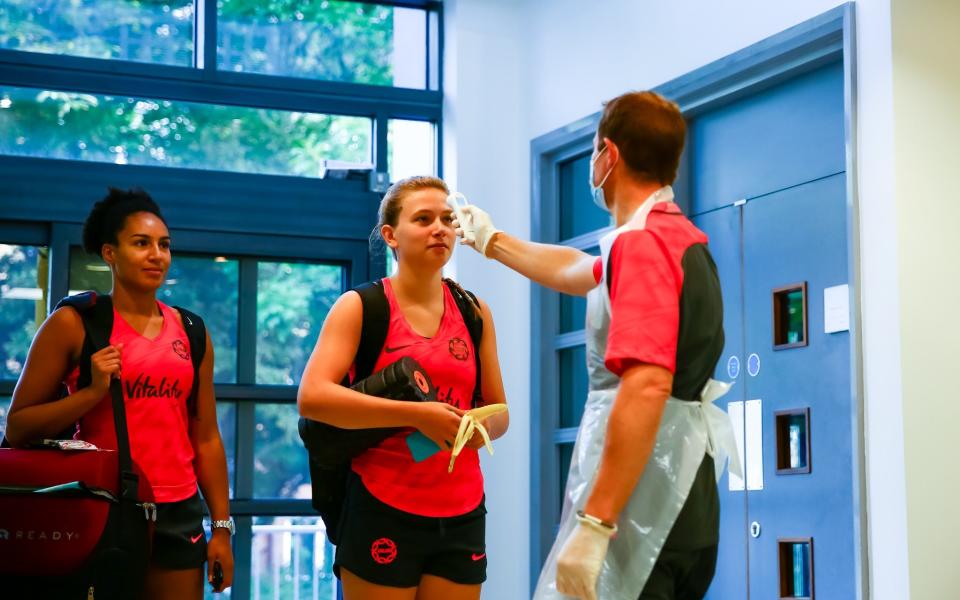Inside story: How England Netball's 'impossible' tour of New Zealand became a reality


In late August, England Netball received a suggestion from the far side of the globe that seemed somewhat far-fetched: would they fancy sending a team to New Zealand to play an international series?
It was a prospect that, to put it lightly, appeared tricky to fulfil. At that point the only 24 players legally allowed to play netball in England – those in the full-time senior Roses and part-time Futures programmes – were some way off even being allowed to train as a full team.
A six-person limit was in place, a timer sounded every 15 minutes to remind staff to sanitise the balls and food preparation areas in camp operated a one-in, one-out policy. If team-mates could not even make dinner together, how would they possibly be able to line-up against the world champions in a matter of weeks?
“We just thought, ‘That’s not going to happen’,” says England captain Serena Guthrie. “They are on the other side of the world and England is full of Covid, where they don’t have any. How are they possibly going to let us into their country? Somehow that opportunity became real.”
There have been casualties along the way – none more significant than head coach Jess Thirlby, who tested positive for coronavirus just days before the squad’s flight was due to depart. But through a substantial amount of unglamorous planning and stringent protocol they made it happen.
On Wednesday, in Hamilton, New Zealand, England will take part in the first international netball match since the pandemic took hold. And, having remained asymptomatic, Thirlby will guide her troops from her home near Bath. “I think I’ll be one of the only coaches to have ever done this from such a distance,” she tells Telegraph Sport. “I’ll be intrigued to know if it’s a world record.”
It was as the first lockdown began to ease in early August that England Netball, the sport’s governing body, attempted to navigate the journey back to a kind of normality, when the elite members of the central England programme were given clearance to return to a form of group training.

All players were initially split geographically, with a fortnight of sessions rotating between Manchester and Berkshire. Temperature checks and health questionnaires were a daily necessity and balls were shared between two players at a time. “It was baby steps”, Thirlby says. “Those two weeks were all about getting their legs back on a court surface”.
Things built steadily. The group were based in Loughborough for four days a week for a month, returning to their separate homes for the other three days. Players were placed into pods of six, in which they trained together and lived while at the camp. No mixing between pods was allowed.
Only after a subsequent week at home – “to see out an incubation period for any form of the virus” – was Thirlby finally able to have all her players on court at one time. Something resembling a professional netball team was starting to come together, but there was one more crucial step to overcome.
Since mid-April, New Zealand had barely seen a double-figure daily increase in coronavirus cases and proof that none of the travelling party would add to that number was required. Despite the months of rigorous procedures, Thirlby tested positive just days before the flight.
“It was definitely a huge shock and a massive blow,” she says, “because not only were the measures so stringent when we were in camp but also when I went home I was pretty vigilant. I can honestly say I did everything I could when I was home. It’s frustrating. I am well. I haven’t had any symptoms at any point, so I’m grateful for that. But that also makes it more frustrating because I feel fine. It is a tough one to swallow. I’ve done all the hard yards of the past few months and don’t get to experience the icing on the cake.”

The news also came as a shock to Thirlby’s players, who had joked about such an eventuality without ever thinking it would happen. “It just highlights that you can do all the safety measures and protocol, but it is really hard to follow the virus because there is that asymptomatic element to it,” says England vice-captain Fran Williams. “We’re just glad that she’s healthy, and can support us from afar.”
There were more hoops to jump through in New Zealand, with three phases of isolation and semi-isolation, and three more Covid tests over two weeks, before the party were allowed out of the hotel and into a world free of face masks and social distancing. The three-match series will take place in the 4,000-capacity Claudelands Arena in Hamilton, offering the England players a rare reminder of a pandemic-free world, before they fly back into the latest lockdown measures on their return.
Assistant coach Kat Ratnapala will take charge in New Zealand but Thirlby insists she remains “accountable for leading the group” and has been watching recorded training sessions and dialling into group meetings. She has even joked about one of her players wearing an earpiece on court during matches. “I’ve definitely shifted my body clock,” she says. “I’m not that precious – I can sleep after the series is done.”
What happens then is unknown. England had hoped to play Jamaica in December, but whether it will be possible is uncertain. It is, says Thirlby, another reason why everyone was so keen for this New Zealand trip to happen – no one knows when they might play together again. “We know what a privilege it is to be on such a trailblazing tour,” she says. “It’s been a real journey.”

